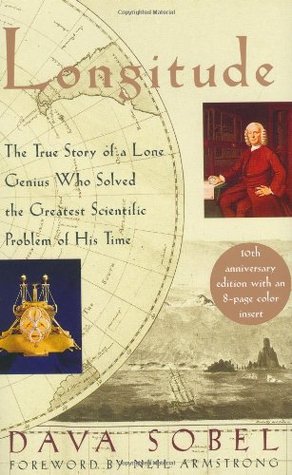Longitude: The True Story of a Lone Genius Who Solved the Greatest Scientific Problem of His Time by Dava Sobel - Review by Abhishek Desikan
Colonization of the world by European superpowers is something most people are familiar with. But it’s not often clear what exactly made them “superpowers” of that era.
Longitude, by Dava Sobel, gives us an insight into one of the important reasons, by delineating the remarkable story of John Harrison, who spent the majority of his lifetime with a single minded focus and dogged determination to solve the 400 year old problem of finding the longitude at sea. A problem which consumed the life of many a sailor and crew, and which made him and his son go through many vicissitudes as they had to overcome not only the technical challenges in creating a time keeper which would keep accurate time at sea, but also struggle against the politics and power structure at Great Britain, and the competing ideologies, until ultimately, the simplicity of “The Watch” led to its ubiquitousness.
Dava Sobel sets the story extremely well by giving us an overview of the history of the problem, the challenges faced, the science behind determining one’s position at sea and the various failed attempts made. It was these little tidbits which I enjoyed reading the most.
The great scientific minds of the time, like Newton and Halley, felt the longitude problem can only be solved by the lunar method, aka using the heavens (the sun, moon and the stars) as reliable timekeepers.
We are then introduced to John Harrison, a man with no educational background nor any experience with watch making, who decided to tackle the problem, no doubt spurred by the 20,000 pound reward offered by the Board of Longitude.
Harrison ended up making 5 different watches, named H1-H5 over the course of 50 years, along with his son. While H4 eventually turns out to be “the Watch” which solved the problem, the advancements made in the lunar method and the heavy patronage given to astronomers by the Longitude Board made it a very trying experience for the Harrisons who, till the end, never got to claim the entire prize money, and only got half of it, in spite of demonstrating their method to be the most superior in comparison to any other.
Harrison was considered a martyr among watchmakers, and after his death, it inspired many a watchmaker to make timepieces for the sea, thus making it scalable and marketable for many sailors to use. It is not a coincidence that this happened in the late 18th century, when European countries, especially Britain, ruled the world by navigating the oceans with precision, and thus establishing their superiority.
Harrison’s tale is yet another in a long list of remarkable humans who battled the odds and succeeded, changing the course of human history. Longitude is a must read not only for history enthusiasts, but anyone who’s interested in the spirit of human excellence.

Originally published here.